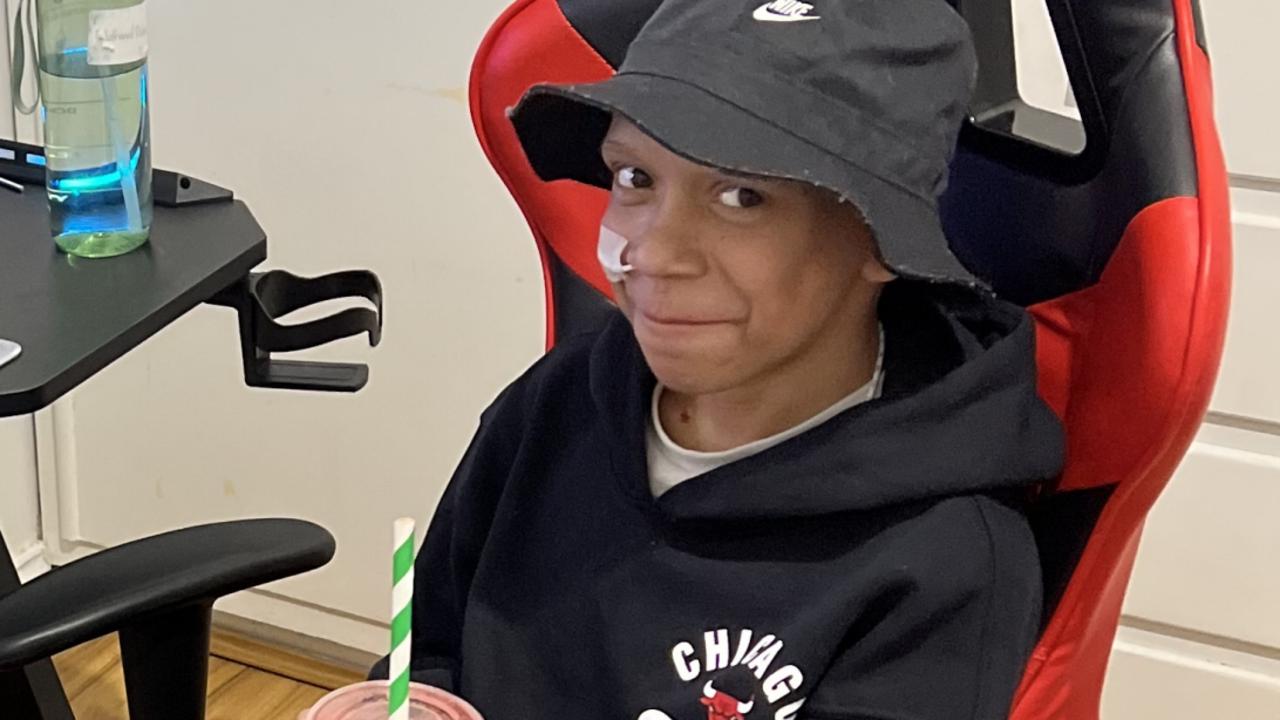New clinical trials as Motor Neurone Disease researchers receive $20.2 million in funding
A $20.2 million round of Australian research grants are set to bolster the fight against Motor Neurone Disease, including one study focused on using a common supplement to slow symptoms.
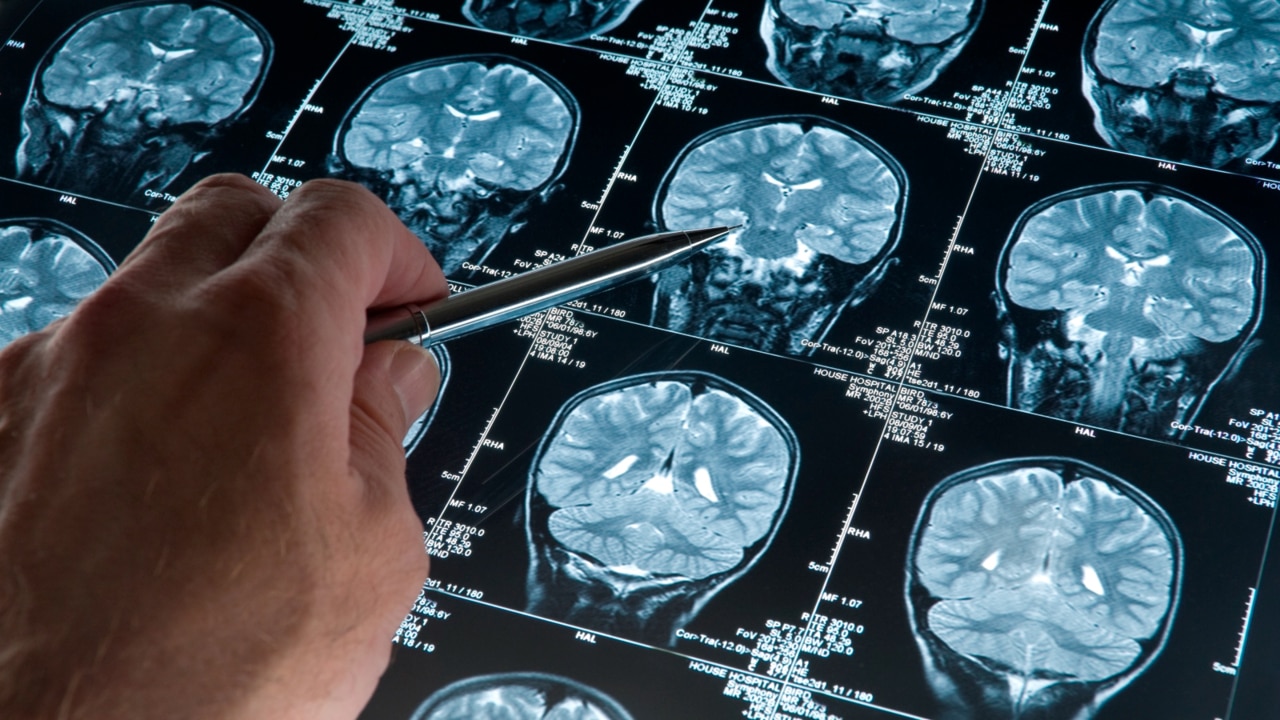
Health
Don't miss out on the headlines from Health. Followed categories will be added to My News.
A cheap dietary supplement that helps the body turn fat into energy will be tested in Australia as a potential treatment for Motor Neurone Disease.
The fatal condition, suffered by thousands including AFL great Neale Daniher, is a rapidly progressive neurodegenerative disorder that destroys nerve cells which control the muscles that enable people to move, speak, breathe and swallow.
Sydney University researcher Professor Steve Vucic will trial the treatment acetyl-L-carnitine (ALCAR) on 250 patients in the hope of arresting the disease.
The cells in patients with MND use more energy than they need to and this stresses them and makes them unable to perform normal functions, eventually it causes the death of the cell, Professor Vucic explained.
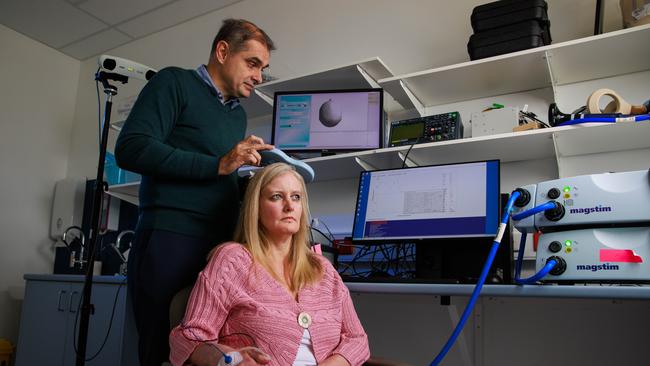
ALCAR “works with a whole bunch of metabolic enzymes and it allows the cell to function better by meeting the energy demands,” explained Professor Vucic.
“There have been medicines that slowed down disease progression to a certain extent, but they don’t stop the disease. So we’re hoping that this compound will have a far bigger effect,” Professor Vucic said.
The clinical trial is one of 30 projects to receive more than $20.2 million in funding from charity FightMND in a bid to improve outcomes for patients who typically survive only 2.5 years after diagnosis.
AFL great Neale Daniher co-founded FightMND in 2014 after being diagnosed with the condition and has helped raise tens of millions of dollars for research through ice bath and blue beanie campaigns some of which is being distributed this week.
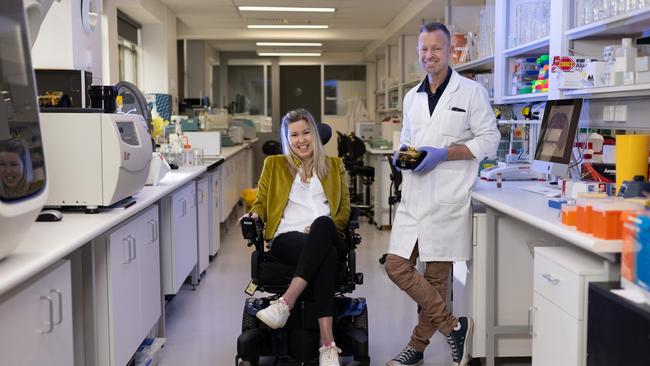
Around 2,000 Australians suffer from MND and there is currently only one drug treatment for the condition funded in Australia.
The new research funding will provide money to test two potential new drugs in clinical trials, fund the development of a blood test to diagnose the condition as well as projects that examine the causes and progression of the condition.
Prof Angela Genge (QurAlis Corporation, USA) has been awarded $1.2 million to test the safety and dosing profile of a new drug called QRL-101 that targets motor system hyperexcitability induced disease progression in people living with MND.
Prof Peter Crack from The University of Melbourne has been given $549,515 to lead a team to screen a library of drugs to find the most promising candidates to treat inflammation in MND, a major driver of disease progression.
Professor Peter Crouch from the University of Melbourne has won $475,085 to test if a new treatment developed for brain cancer can also slow disease progression in preclinical models of MND.
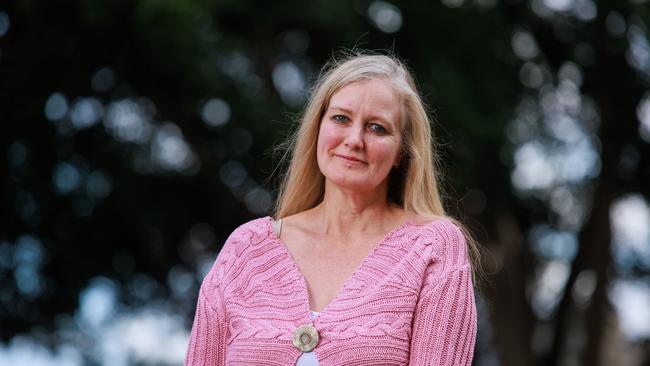
Nine Care Support projects around Australia that are aimed at improving the quality of life for people living with, and affected by, MND.
It took Sydney mum Jennifer Hartman almost a year to get diagnosed with MND when she started losing function in her left hand in 2022 “time that I could have made different decisions about what to do with life”.
The librarian who managed technology that underpinned crucial health information portals and was a highly competitive swimmer said a blood test that could speed up diagnosis was desperately needed.
“I can’t write anymore I’m in the in the final stages of being able to feed myself. I can’t undertake any form of self care independently, I can’t drive, I’ve just recently been put on thickened fluids and a modified diet. I’ve lost I’ve lost 30 kilos,” she said.
“Every new person that gets this now unless a cure or treatment of some kind comes almost immediately, it probably won’t be quick enough,” her husband Shane said.
Melbourne mum Adena Savva has already had her ability to speak impaired as a result of MND.
“It’s definitely important [to have that hope] for everyone out there that has this disease, and all our friends and family and the communities around us, it is really important,” she said.
Originally published as New clinical trials as Motor Neurone Disease researchers receive $20.2 million in funding




